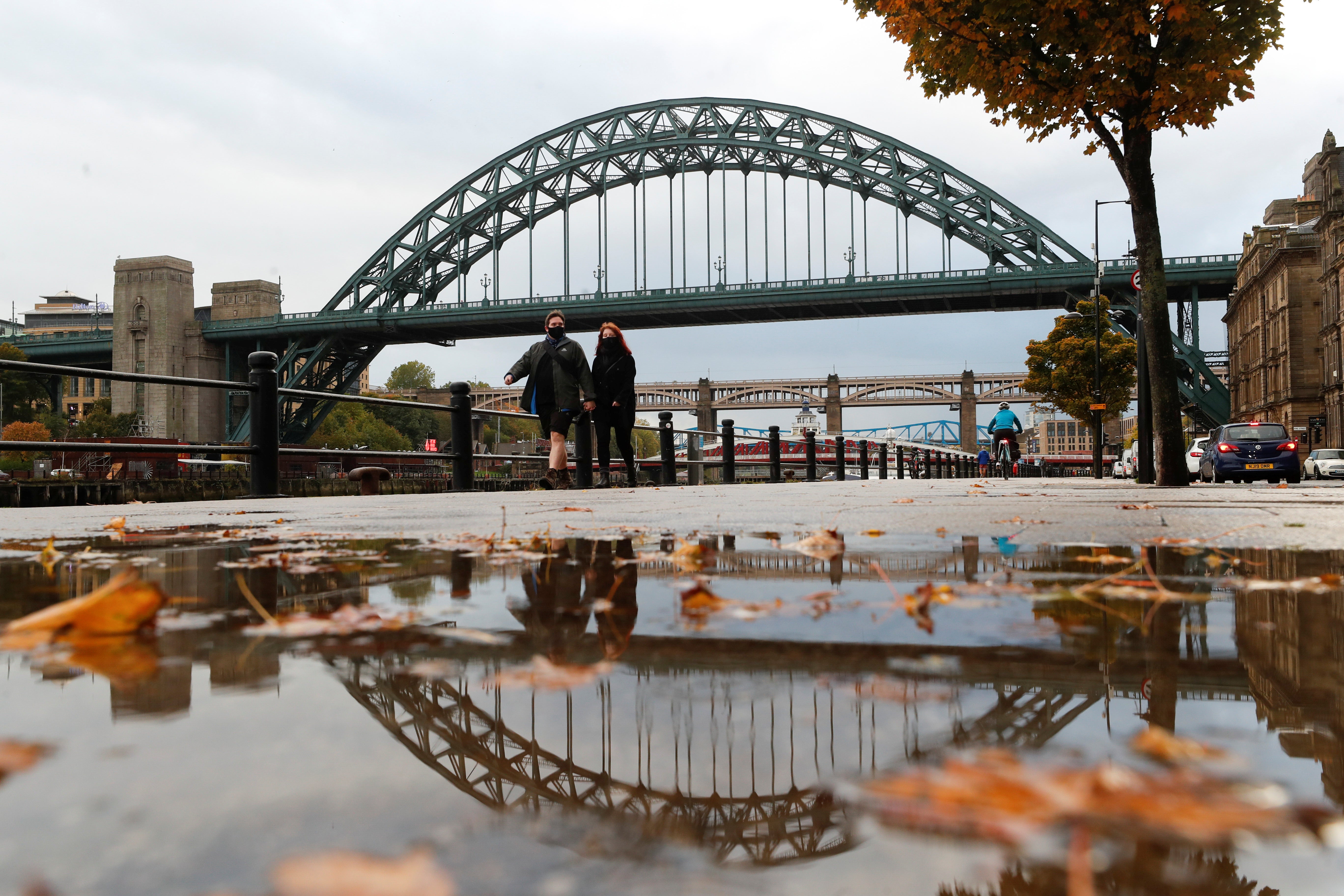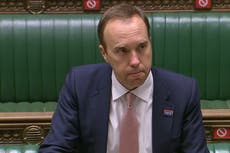Coronavirus: Northeast councils unite to oppose imposition of toughest restrictions
Civic leaders warn impact on hospitality sector would be ‘catastrophic’

Local leaders in the northeast of England have declared that they will resist government efforts to move the region into the highest level of coronavirus restrictions.
Leaders of Northumberland, Newcastle, South and North Tyneside, Gateshead, Sunderland and County Durham agreed that time should be allowed to see whether the current regime is working before any change.
The move marks a further challenge to Boris Johnson’s regional strategy for tackling the disease, after he had to back down on plans to tighten restrictions in Greater Manchester and Lancashire.
Downing Street has said the prime minister wants to reach “maximum consensus” from local authorities over controls in their regions, but denied that they had been given an effective veto. Mr Johnson’s spokesman noted that the government retains the power to impose restrictions if they are not accepted voluntarily.
Health secretary Matt Hancock today voiced frustration at resistance to changes to alert levels from Labour municipal leaders in the north, telling MPs that “working together” is the best way to defeat the virus.
The government has been engaged in discussions with civic leaders in the northeast in recent days on a possible move from Tier 2 “high” restrictions, which bar indoor socialising by different households, to the toughest Tier 3 “very high” alert, which would see pubs, bars and other venues closed.
Announcing the northeast leaders’ decision following a meeting this morning, Gateshead Council leader Martin Gannon said the support package proposed for the 100,000 people employed directly and indirectly in the North East’s hospitality sector would be “catastrophically disastrous”.
He said: “We would oppose Tier 3 on those grounds alone, but we think the current strategy is working.”
The current figure for infection rates in Gateshead was 238 per 100,000 up on Wednesday’s figure of 233 per 100,000.
Mr Gannon said: “It’s going up, but slower than it was a week or two weeks ago, it’s not doubling every five days.
“The figures are turning down because we have the support of a significant proportion on the public.”
Mr Gannon said local leaders suspected that the government might be basing its decision on escalating alert levels on the infection rate among over-60s.
“There’s a bit of confusion about what the Government is looking at,” he said. “We think it is based on the number of cases in over-60s.
“It would be helpful if they would clarify that.
“If we are forced into Tier 3, we would like to know the criteria so we would know the criteria to remove us.”
Ministers have said that decisions on restriction levels are made on the advice of the Joint Biosecurity Centre taking into account a range of factors including infection rates, the speed of spread of the virus and the particular circumstances in an area.
Join our commenting forum
Join thought-provoking conversations, follow other Independent readers and see their replies
Comments



Bookmark popover
Removed from bookmarks